
This story can also be found in The Winter Issue of Life & Thyme Post, our limited edition newspaper for Life & Thyme members.
Every Christmas Eve, you’ll hear a whole lot of slurping at the Diaz dinner table. My family will be hunched over bowls of Mexican pozole with its bright orange broth, tender bits of hominy, shredded chicken, and garnishes of all kinds and colors: thinly cut cabbage, rounds of radishes, chopped cilantro, diced onions, dried oregano, and cubed avocado. We spend more time decorating our pozole than we do our Christmas tree.
When the opportunity arrived to chat with the founders of Our Place, the trailblazing, impact-driven cookware brand focused on millennial homecooks and multiethnic cooking, I felt it was only fitting to do so over pozole—served in their plateware, naturally. From their Always Pan, which Fortune Magazine called “A Pan That Is Able to Replace Most of Your Cookware by Itself” to their upcoming Nochebuena collection, a series of heirloom cookware made from emerging artisans in Oaxaca and Puebla, Mexico, Our Place provides the essentials for the socially conscious home cook.
And it doesn’t hurt that their products make your home cooking worthy of the ‘gram.
Meet the Founders
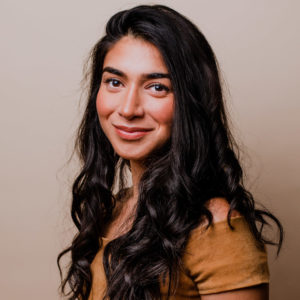
Shiza Shahid
Co-Founder
Born in Pakistan and graduate of Stanford University, Shahid would later become known as the co-founder of the Malala Fund with Nobel Peace Prize winner Malala Yousafzai, empowering women entrepreneurs and supporting mission-driven start-ups with her fund and platform, NOW Ventures.
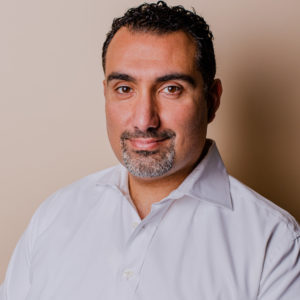
Amir Tehrani
Co-Founder and CEO
Born in Iran, Tehrani immigrated to Los Angeles at age four and followed an entrepreneurial path guided by a passion for inclusivity and helping local companies to source capital. Tehrani later founded Allied Group, Inc., a leading manufacturer for consumer products in the food and beverage space.
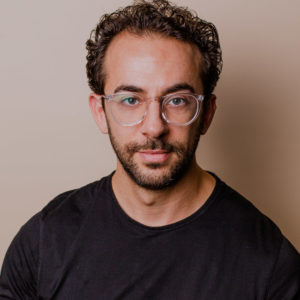
Zach Rosner
Co-Founder and COO
Prior to Our Place, Rosner studied psychology at the University of Connecticut and later joined Everlane, a transparent clothing brand for conscious consumers and the subscription-order apparel brand, MeUndies.
How did the Nochebuena collection come about?
Zach Rosner: The inspiration came from wanting to celebrate tradition and to highlight different cultures and communities. The more we discussed it internally, the more we realized this actually might be—for some sad reasons—the perfect time to highlight a Mexican tradition and shine a dignified beautiful light on a community, a culture, and a population—that’s being horribly vilified in this country by some really powerful people—who have a really bright light of their own.
What did you learn about the artisans that you didn’t already know?
Shiza Shahid: [They’re] artisans, but it’s not just people preserving cultures trapped in the past. [They] are also thinking forward and have really interesting techniques that are relevant for the industry as a whole. [The María Bowl] is red clay from Oaxaca that’s handmade. [The Rojas Molcajete is made from] volcanic rock. [The Erika Mezcal Glasses] are hand-blown glasses. It’s just really beautiful.
What did you learn about Mexican traditions?
Shahid: The thing we’re trying to do is talk about culture with full respect and honoring and reinvesting in communities. Having the courage to say we’re going to do Nochebuena through a Mexican lens—we’re going to search for products that are Oaxacan and get specific.
But with the specificity then start to find the threads of universality. I’m Pakistani, and hospitality is a very big thing. Mexican culture is deeply hospitable. That felt deeply familiar. Mexican culture holds a very special place for women—particularly mothers.
Yes, Pakistan has challenges around gender, but a mother’s role is so sacred. In Pakistan, we say paradise lies beneath a mother’s feet. It’s a very different role than a father or from anyone else.
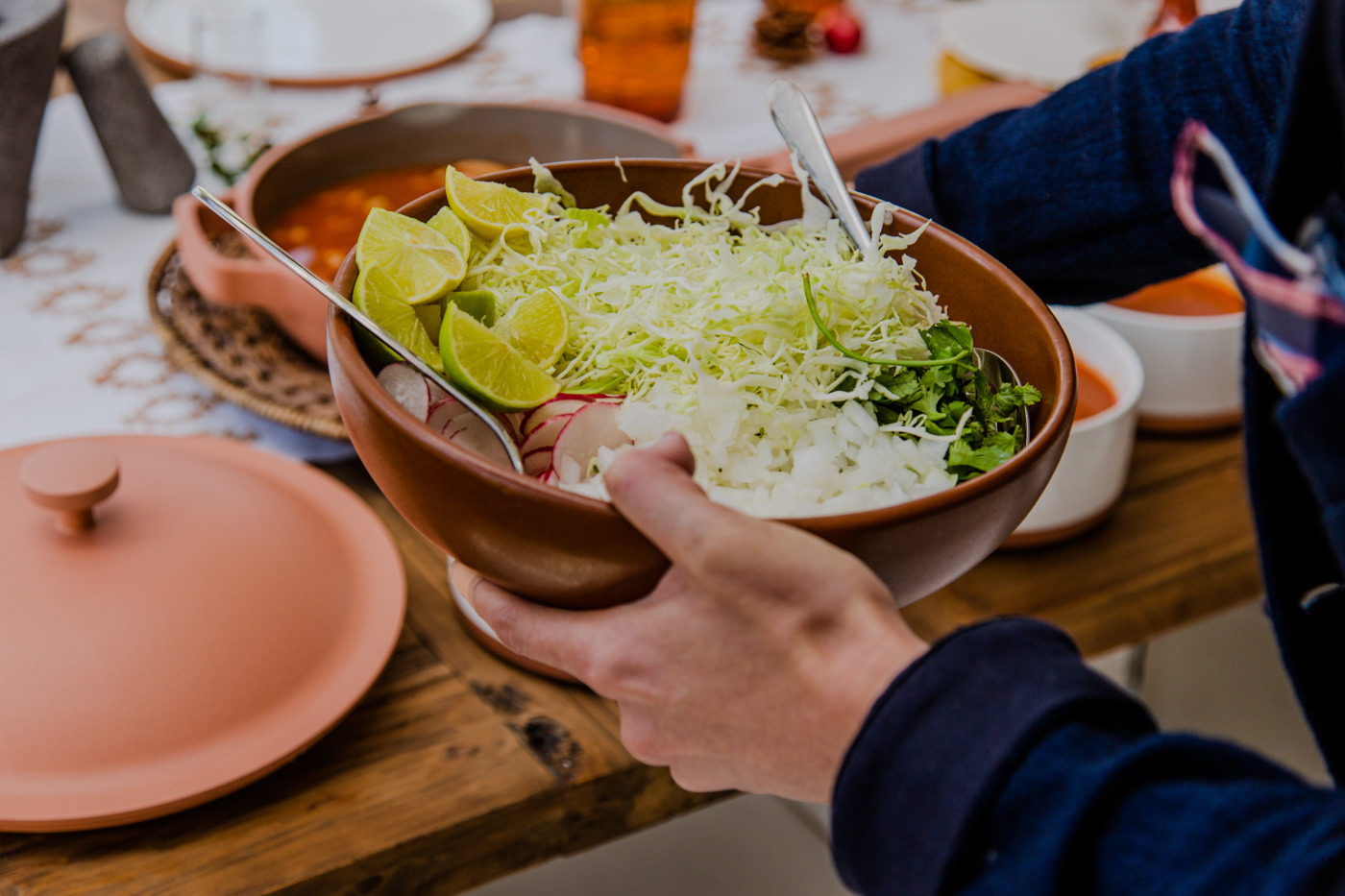
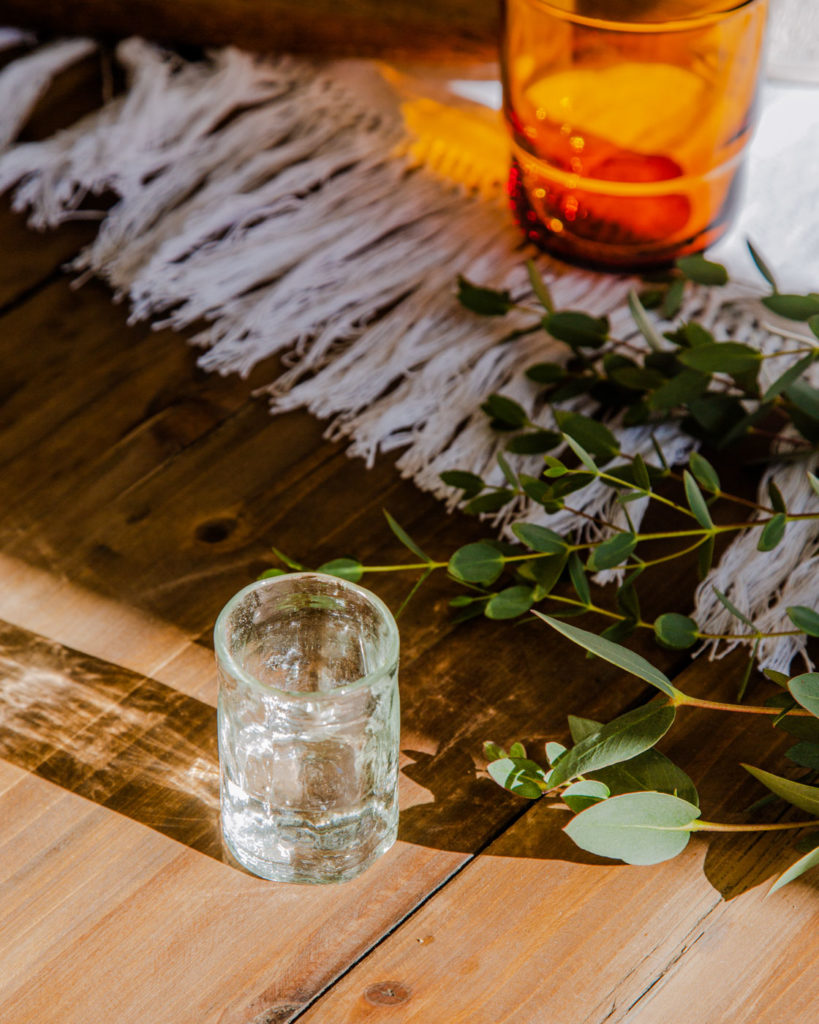
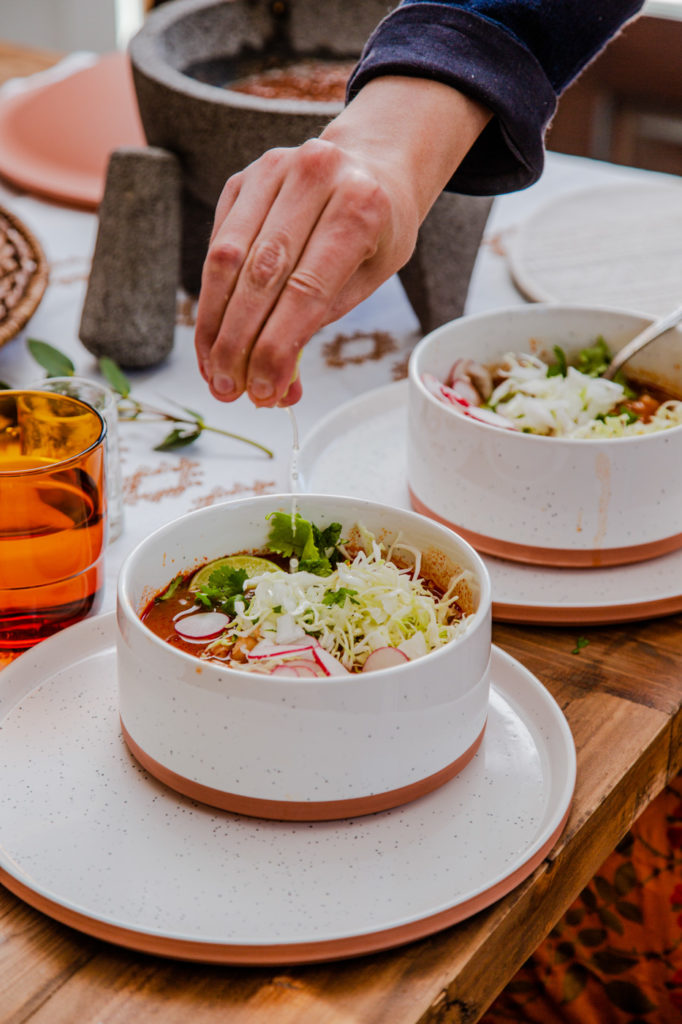
Shiza, so much of your work is based on empowering other women, like female artisans in other countries. Why is that important for you?
Shahid: Our team—other than these two dudes—is all female. Most of our products are sourced from women-owned collectives or factories. [The Always Pan] is made in one of China’s few women-owned factories.
We’ve been trying very hard to invest in women in all that we do. That’s a choice that everyone can make. If you’re working in a company, you can look harder to find a candidate who is a woman or a person of color or an immigrant and give them the mentorship that will allow them to succeed.
It has to be a conscious decision at the top, right?
Shahid: It’s all about consciousness, right? Once people are aware, they start to change. The challenge is it’s hard for people to acknowledge their own bias. Everyone has biases. Bias is simply the way our brain organizes all the information that it’s confronted with. We sort it into patterns.
So if you’re a white male investor and you rode crew at Yale and all of your buddies were guys who look like you… if that’s all you’ve seen, very quickly your brain starts to have a picture of what success looks like.
A lot of the bias is not this sick evil guy sitting in a chair saying, “I hate women.” It’s just people with the perspective that they have. The more diverse you can make the seats of power, the less likely you are to make decisions that are biased or do harm.

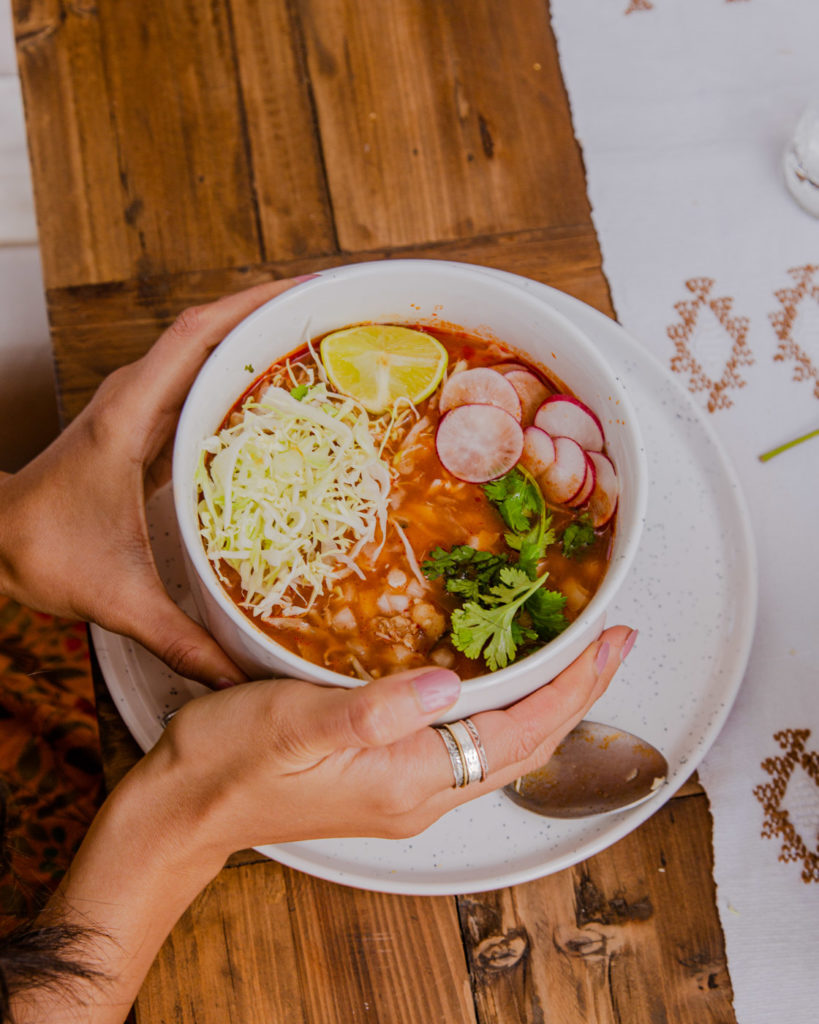
What are the elements that go into a impact-driven company that is also for-profit versus a company that is purely for-profit? What is that distinction?
Shahid: Traditionally, people have seen impact in very simplified terms. Usually companies do corporate social responsibility, which means they usually donate to something that is non-controversial.
It’s safe.
Shahid: It’s safe, like cancer research—something nobody will have a problem with. And look, I’m all for donating to cure disease; I think it’s critical. But that’s it. That’s where it stops. Where we are is saying every choice you make, you have an opportunity to do better.
If you are going to source a pan in China, it can be from a female-owned factory. If you’re going to talk about Mexican tradition, at least look at the country and see if it’s possible to source products from Mexico before you go to China. If you are going to package your products in a box, can it be free of plastics and one hundred-percent recycled and biodegradable?
For us, it’s been about looking at each of the things we do and say, “Is there a way to do this that’s better while building a healthy business?” Usually, the answer is yes.
How are you seeing conscious consumerism received with the home cook?
Rosner: Let’s put it this way: if we discovered some company where you bought your jacket and there was child labor, it would be on the front page of The New York Times. You can’t get products now that are made in places like that. Things are slowly starting to shift to the next pillar, which is ethical manufacturing, being thoughtful about things, and being transparent in your supply chain.
It hasn’t totally taken over yet, but maybe twenty to thirty years ago, you could still find some things that were made by children in terrible factories. Thirty years from now, I don’t think you’ll be able to buy products that aren’t made from places where you can learn everything about the factory.
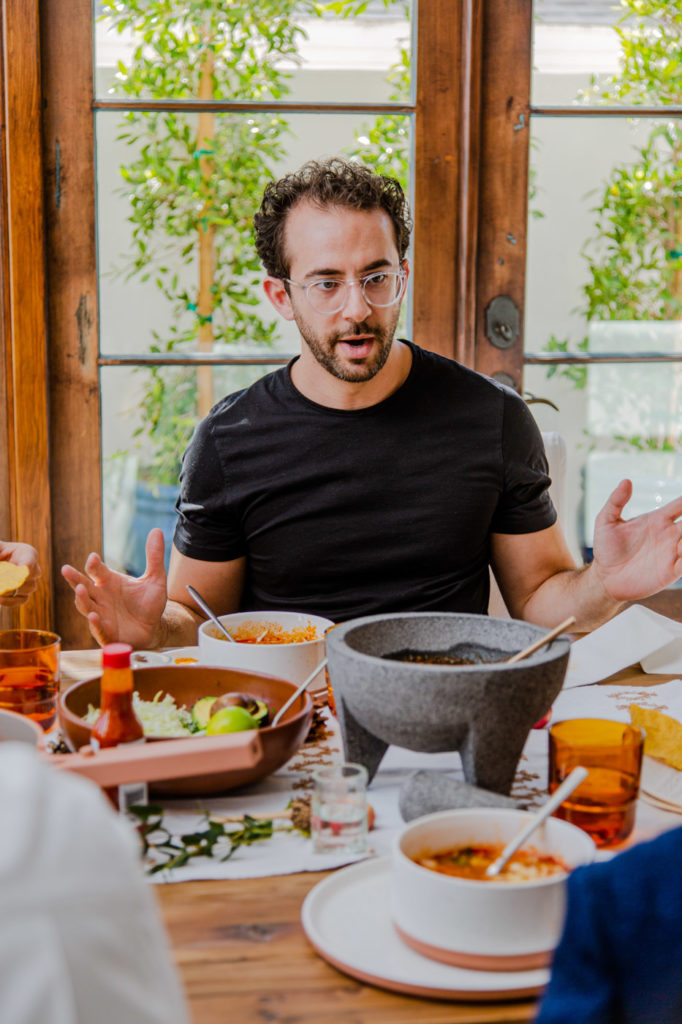
But now we have Amazon. Because of the ease of buying products from them, we don’t know where those products are made. I just want to make sure I get it in two days.
Amir Tehrani: I think that’s why brand is more important than ever because people will trust the brand to do the right thing, and it’s important for us to build that trust as early and as often as possible.
The other part of this is everything is going in the direction of becoming more and more isolating. Young people in particular are saying to themselves, “I want things that are less isolating,” like I want less screen time on my phone, or I want to have people over for dinner.
That goes back to something super innate and fundamental in all humans as a point of connection. People are yearning for more of that and for the opportunity to cook again and convene again. [Part of that] is the opportunity to give people an excuse to get people together again.
Shahid: I don’t see a brand like ours in cookware that is talking about design, the supply chain, artisan stories, and putting messy tables on Instagram—[that is] going into homes in South L.A. that are small but filled with love and joy and saying this is also aspirational.
I’m talking about culture. I’m talking about tamales instead of mashed potatoes and apple pie on Christmas. That is our Christmas campaign. That is very new in cookware and I’m proud we’re doing it.
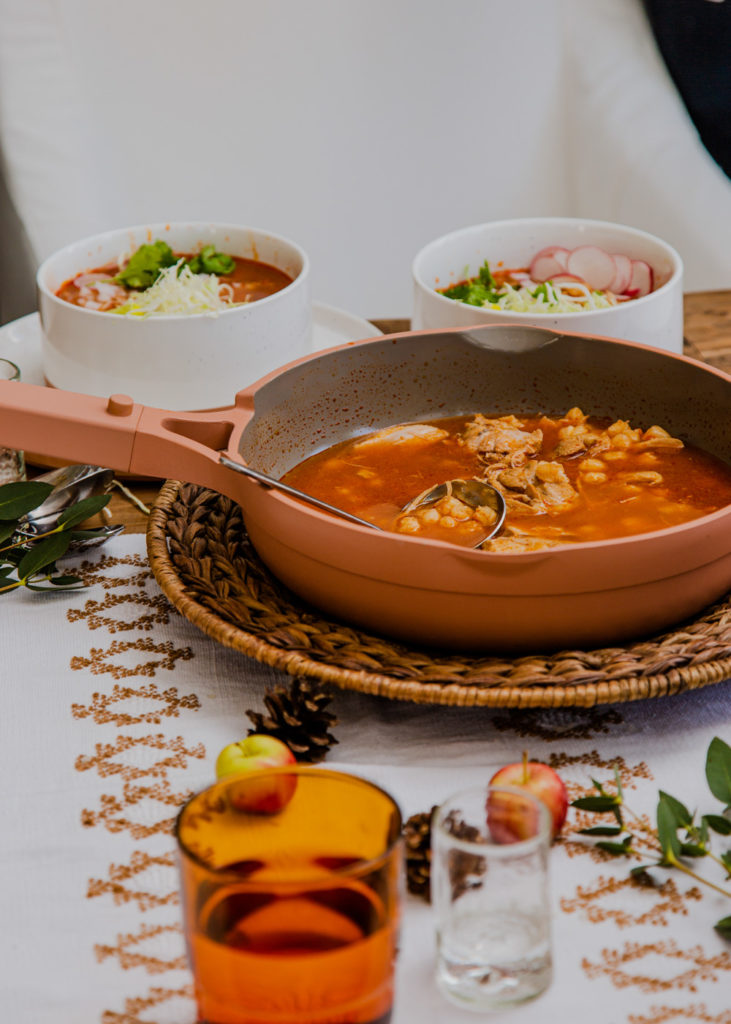
Our Place is venture backed. How do you scale to become profitable while appealing to investors and retaining the artisanship?
Rosner: What we’re doing for our Nochebuena collection—and what we may do for future artisanal handmade collections—is [they are made in] super limited edition, super limited quantities.
We’re maxing out capacity in some artisans, which we’re really happy to be able to do. But we know these collections are not necessarily going [where] we’re making our biggest margin.
These are our big opportunities to share a story directly from the community where it’s from. It’s to leave some money in these communities to go to Oaxaca and contribute to the economy there and not just be all talk about it.
That [alone] wouldn’t necessarily be a scalable business. We’re also creating evergreen products like the Always Pan and [the Essentials] dinnerware collection. This is everything you need to cook and prepare a meal at home. Then you can supplement with these inspiring, beautiful, handmade products [like the Nochebuena collection].
Nevertheless, we still spent a lot of time finding factories where even though they’re not literally being hand-carved or hand-hammered, financially it’s a more favorable for us. It’s an incredible factory, [it’s] the best we could find in the best place that makes the best type of this cookware.
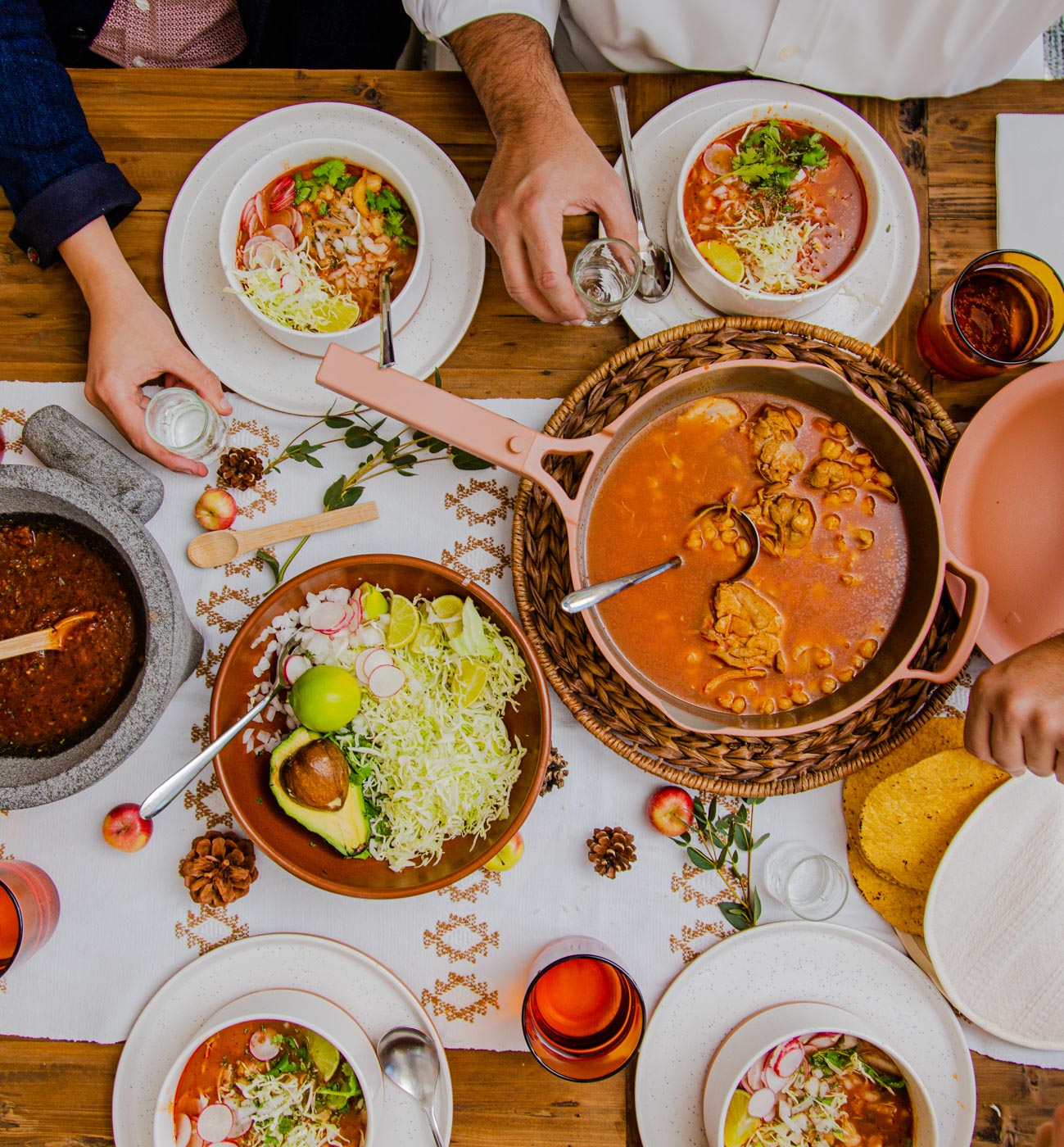
What do the holidays look like for each of you?
Tehrani: The Iranian version of the holidays is around Persian New Year, which is in March and has a lot of similarities. It’s around family, food, there’s gift giving, and it’s really beautiful in that way. Even from the first year we were here, we really took to Thanksgiving. Because it’s really about food, family and coming together. There’s American quintessential turkey [and] mashed potatoes, but then there’s also Persian food, rice, tahdig, stews and kebabs. It’s a real mash-up.
Rosner: We are obsessed with food. My mom insists on doing all of the cooking. And the menu she makes is not food for eight or nine people. It’s enough food for forty-five people, and there are multiple courses.
She makes fresh ravioli and puts them on little spoons and comes around with the tray. Then she has sips; she feeds us as if we’re in a tasting menu-style restaurant. Meanwhile, we’ve been eating cheese and crackers, meats, dips, spreads and shrimps since seven a.m.
Shahid: I grew up in Pakistan at a time when there was a lot of instability, the rise of extremism, and a lot of erosion of tradition. Because Pakistan traditionally is part of South Asia—India, Bangladesh, Pakistan—[it had] a deep, rich diversity of tradition. But in the last thirty years with geopolitical context of the war in Afghanistan, money from Saudi Arabia coming in, and money from the U.S. coming in, there was a stripping away of tradition, which was very sad for me growing up. I grew up trying to hold onto certain traditions that were local, but also really looked up to Western traditions. I know all the Christmas carols.
I like to try and go to Europe for the Christmas markets because they are so beautiful. For me, it’s a hodgepodge of trying to hold onto the traditions back home. [I’m] being really deliberate about that because I think it’s sad to live a life where you don’t have traditions and rituals.





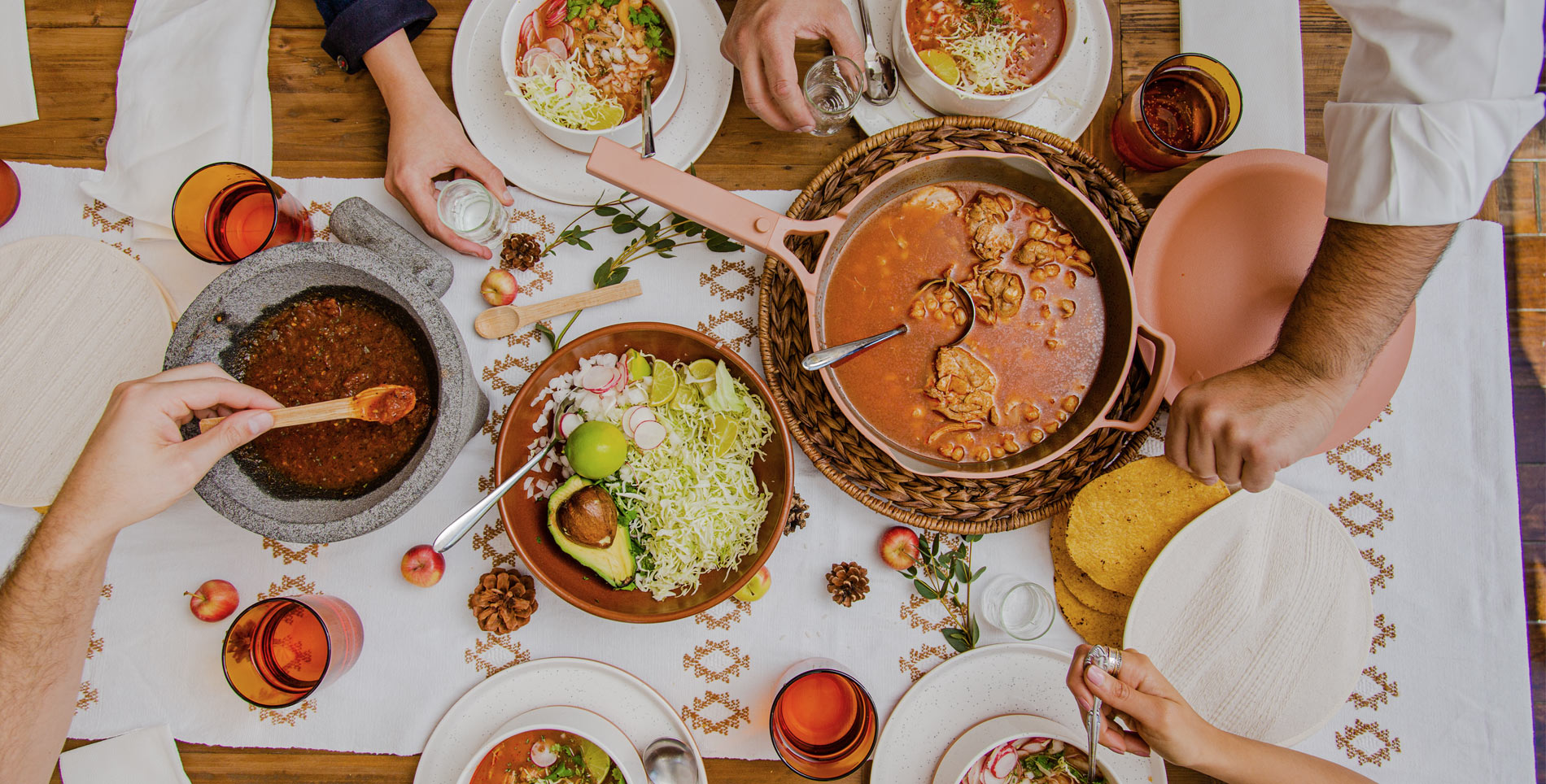

Our comments section is for members only.
Join today to gain exclusive access.